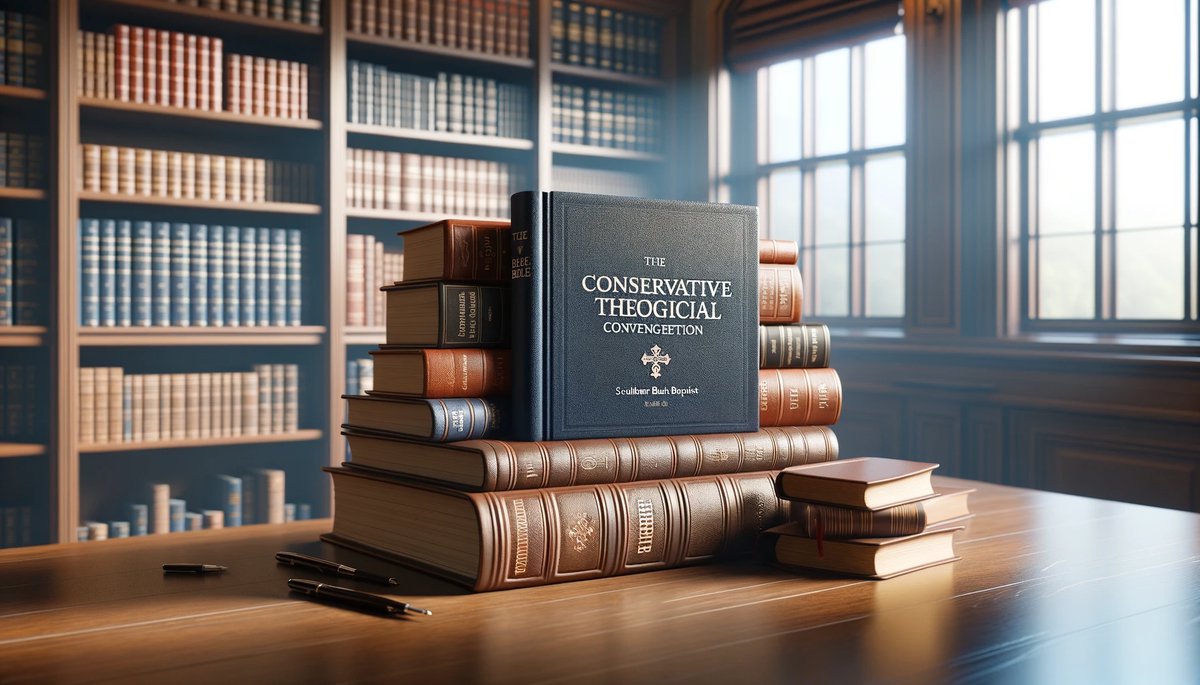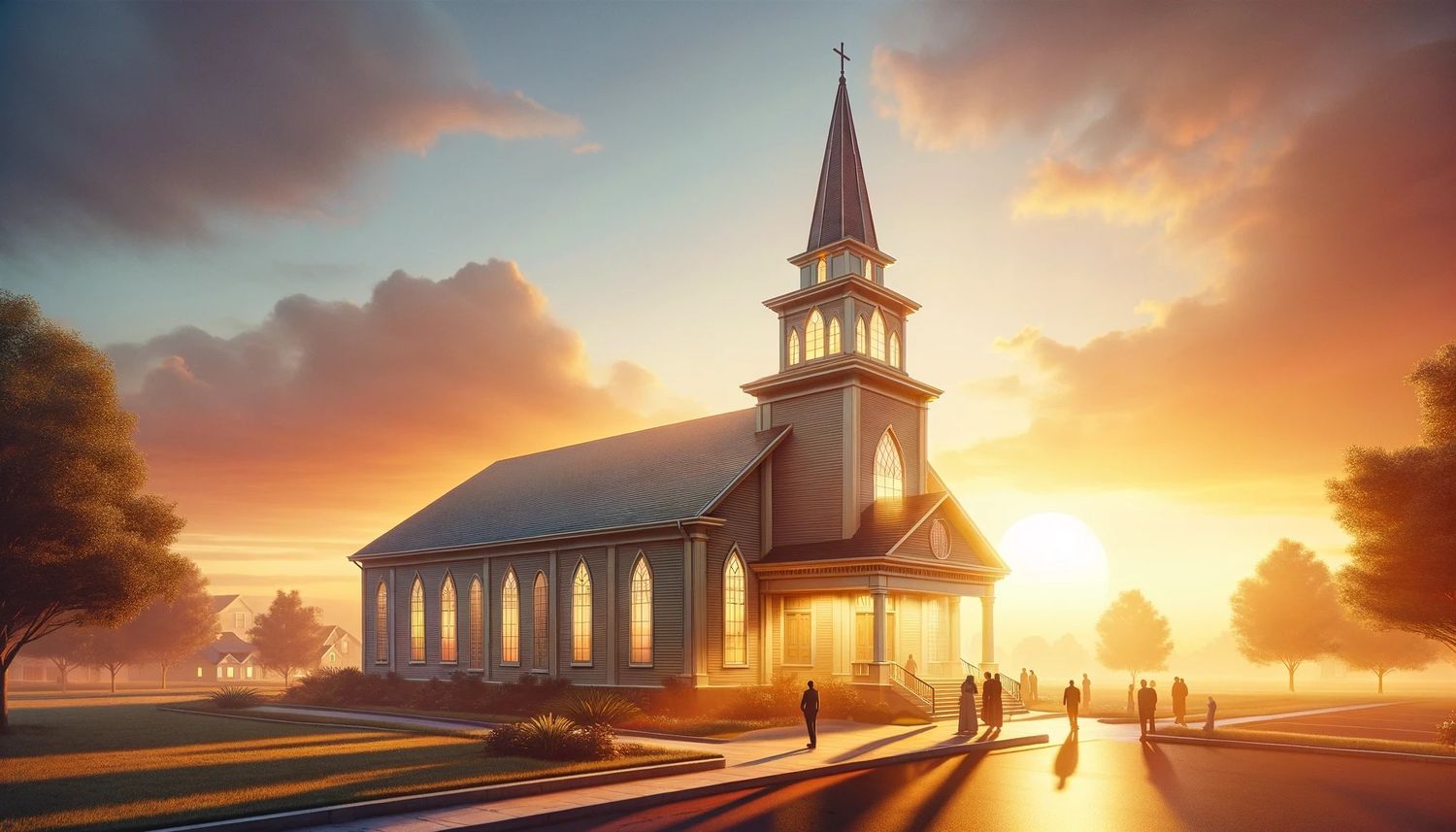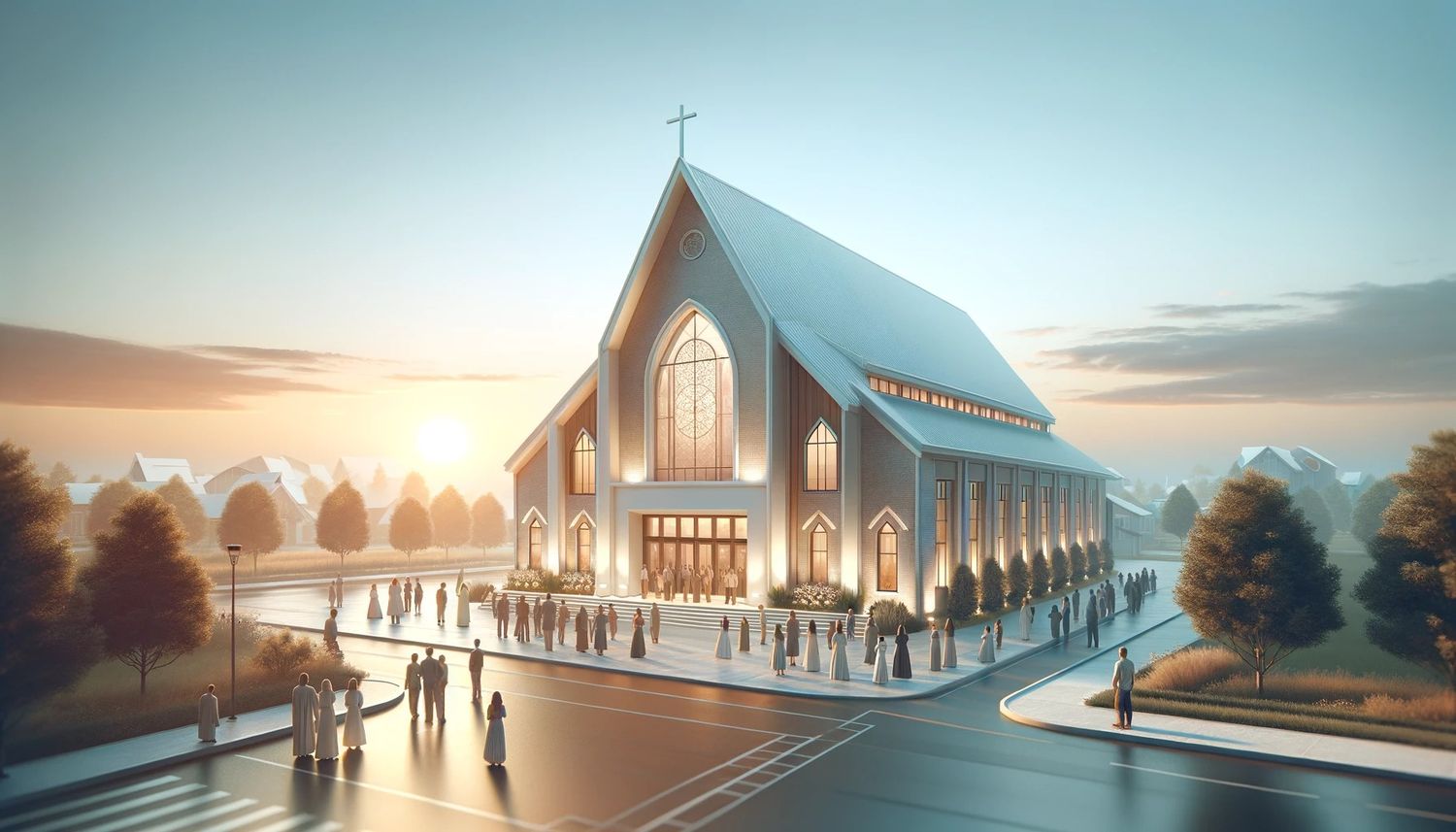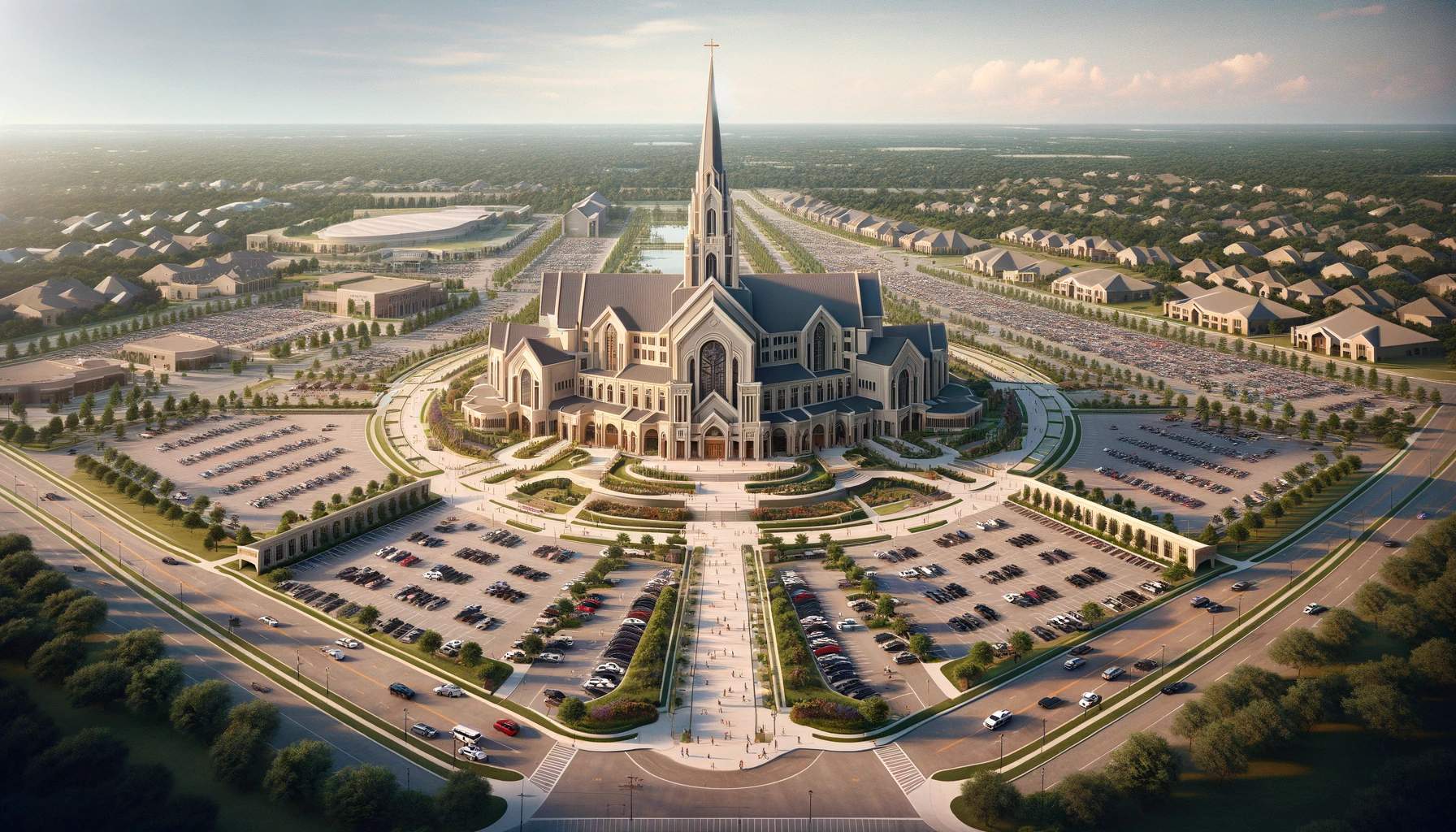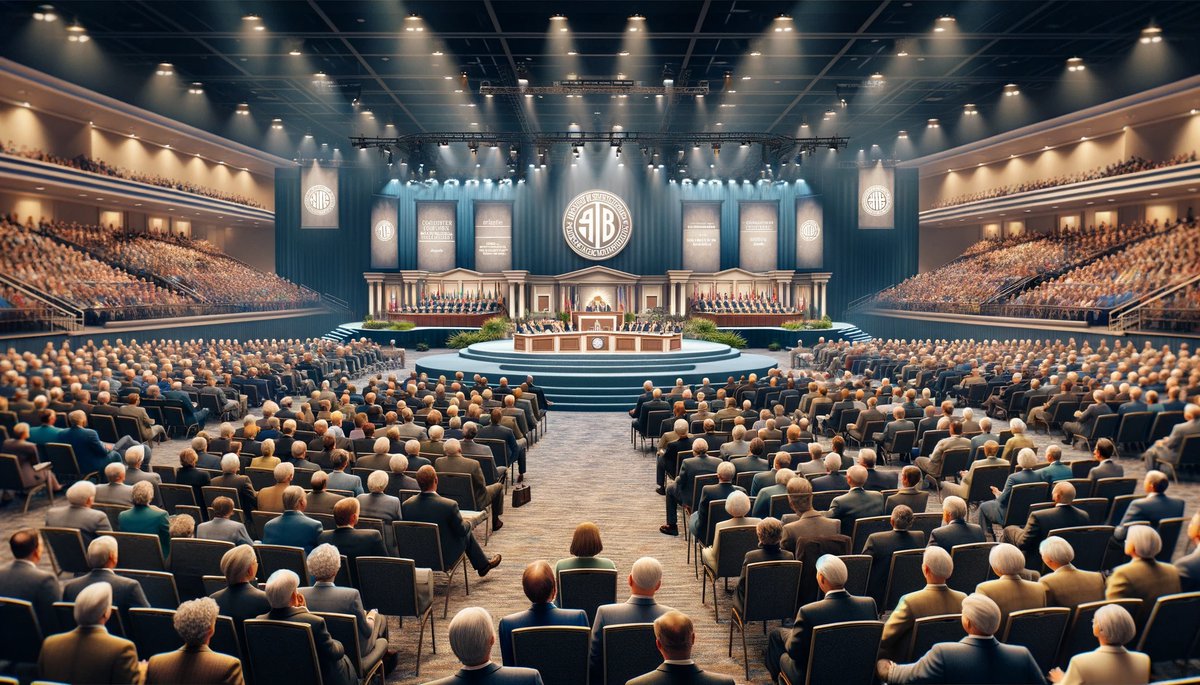Home>Theology and Spirituality>What Is A Southern Baptist
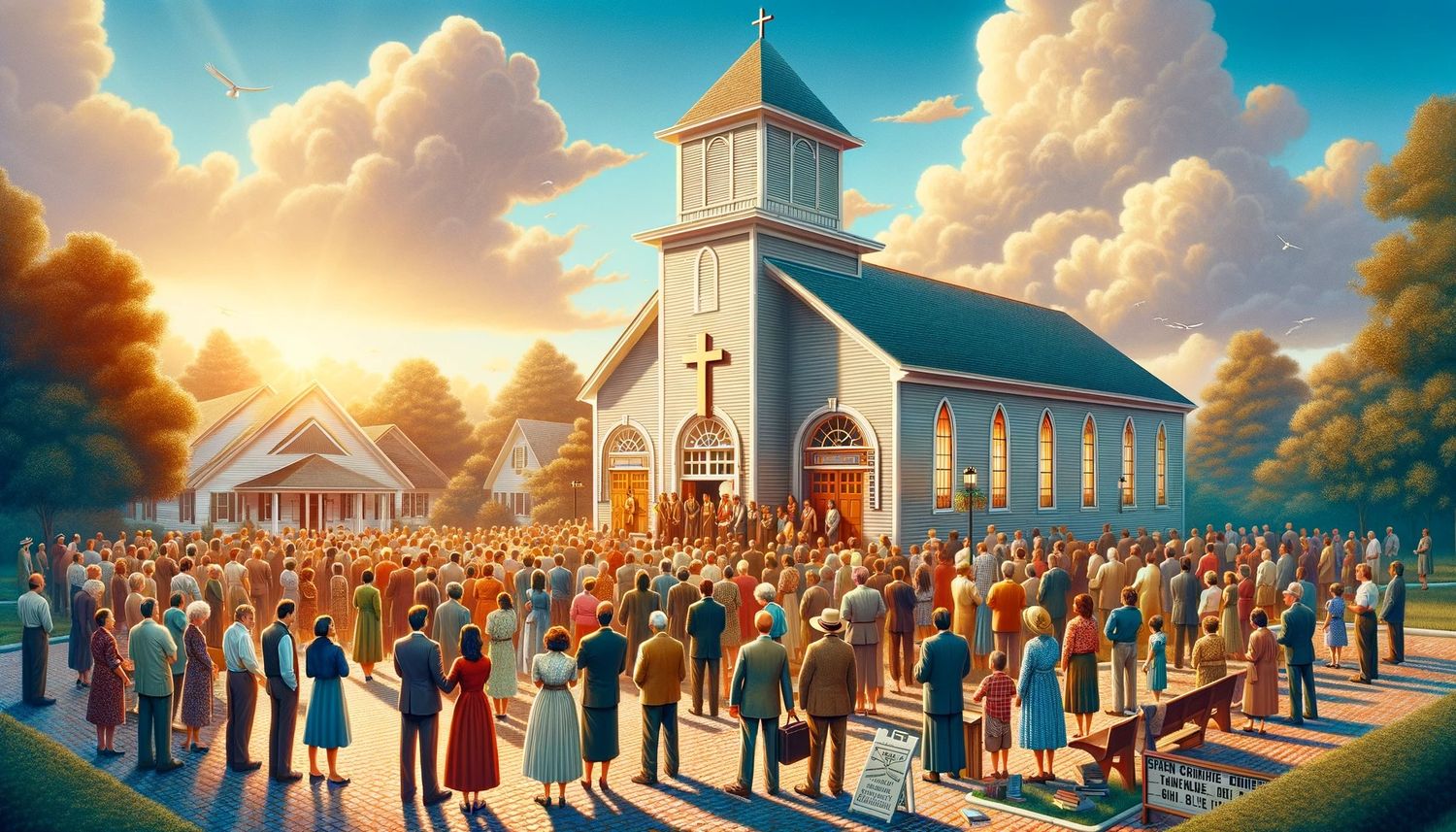

Theology and Spirituality
What Is A Southern Baptist
Published: February 23, 2024
Ericka Andersen, an editor at Christian.net, expertly merges digital strategy with content creation, focusing on faith and societal issues. Her communication skills enhance the platform's engaging narratives, fostering meaningful dialogue on belief's impact on society.
Discover the core beliefs and practices of Southern Baptists, a Protestant denomination known for its conservative theology and spirituality. Explore the history, beliefs, and impact of Southern Baptist churches.
(Many of the links in this article redirect to a specific reviewed product. Your purchase of these products through affiliate links helps to generate commission for Christian.net, at no extra cost. Learn more)
Table of Contents
Introduction
The Southern Baptist Convention (SBC) is one of the largest Christian denominations in the United States, with a rich history and a significant impact on American religious and cultural landscapes. As a prominent evangelical Protestant denomination, the SBC holds a distinct place in the tapestry of American Christianity. Understanding the origins, beliefs, practices, controversies, and influence of the Southern Baptist Convention provides valuable insights into the diverse and dynamic nature of religious expression in the United States.
The SBC's journey is marked by a complex interplay of theological convictions, cultural shifts, and social dynamics. Exploring the history, beliefs, and organizational structure of the Southern Baptist Convention unveils a multifaceted narrative that has shaped the lives of millions of adherents and reverberated through the corridors of American society. This exploration will shed light on the SBC's distinctive theological positions, its approach to mission and evangelism, and its role in contentious social and political debates.
Delving into the controversies and criticisms surrounding the SBC offers a nuanced understanding of the challenges and tensions within the denomination. Moreover, examining the influence and impact of the Southern Baptist Convention provides valuable insights into its reach and significance in the broader religious landscape of the United States.
The Southern Baptist Convention stands as a multifaceted institution, embodying a spectrum of beliefs, practices, and traditions that have evolved over time. By navigating through the intricate tapestry of the SBC, we gain a deeper appreciation for the complexities and nuances of American religious life and the diverse expressions of faith that shape the nation's spiritual ethos.
Read more: What Is A Southern Baptist Church
History of the Southern Baptist Convention
The history of the Southern Baptist Convention (SBC) is a compelling narrative that intertwines with the broader currents of American religious, social, and cultural history. The roots of the SBC can be traced back to the early 17th century when English Separatists and Puritans sought religious freedom in the New World. Over the centuries, the Baptist movement in America underwent significant transformations, eventually leading to the formation of the Southern Baptist Convention.
The SBC's origins can be linked to the Baptist associations and churches in the southern United States, particularly in the aftermath of the American Civil War. The issue of slavery played a pivotal role in the denomination's formation, as it led to a schism within the national Baptist organization. In 1845, Southern Baptists officially separated from their northern counterparts, forming the Southern Baptist Convention in Augusta, Georgia. This split was largely driven by the Southern Baptists' defense of slavery, which stood in contrast to the abolitionist sentiments gaining momentum in the North.
Throughout the late 19th and early 20th centuries, the SBC experienced significant growth and expansion, buoyed by fervent evangelism, missionary endeavors, and a commitment to conservative theological principles. The denomination's steadfast adherence to biblical inerrancy and its emphasis on personal conversion and evangelism solidified its identity within the broader landscape of American Protestantism.
The 20th century witnessed the Southern Baptist Convention grappling with internal and external challenges, including theological debates, social changes, and racial tensions. Notably, the Civil Rights Movement prompted the SBC to confront its historical entanglement with racial segregation and discrimination. This period saw a gradual but arduous shift towards racial inclusivity and a repudiation of the denomination's past support for segregation.
In recent decades, the SBC has continued to navigate a complex terrain marked by theological diversity, cultural shifts, and societal transformations. The denomination has engaged in discussions on gender roles, ecclesiastical polity, and social issues, reflecting the evolving dynamics within American evangelicalism.
The history of the Southern Baptist Convention is a tapestry woven with threads of triumphs, challenges, controversies, and transformations. It mirrors the intricate journey of American Christianity, encapsulating the complexities of faith, culture, and identity in the United States. The SBC's historical trajectory serves as a testament to the enduring influence and adaptability of this prominent Christian denomination.
Beliefs and Practices
The Southern Baptist Convention (SBC) is characterized by a set of core beliefs and practices that shape its theological identity and guide the religious lives of its members. At the heart of SBC's belief system is a commitment to the authority of the Bible as the inspired and inerrant Word of God. This foundational belief underscores the denomination's conservative theological orientation and informs its doctrinal positions on various theological, ethical, and social issues.
Central to SBC's theological framework is the affirmation of key Christian doctrines, including the Trinity, the deity of Jesus Christ, salvation by grace through faith, and the resurrection of Jesus. These doctrinal tenets form the bedrock of SBC's faith and serve as the doctrinal compass that steers its theological convictions and spiritual practices.
In line with its evangelical heritage, the SBC places a strong emphasis on evangelism and missions, viewing the proclamation of the gospel and the conversion of individuals as central to its mission. This evangelistic fervor permeates the denomination's ethos, driving its commitment to sharing the Christian message both locally and globally.
The SBC also upholds traditional Christian moral values, advocating for a conservative stance on issues such as marriage, sexuality, and the sanctity of human life. This moral conservatism reflects the denomination's interpretation of biblical teachings and informs its engagement with contemporary social and ethical debates.
In terms of practices, the SBC adheres to believer's baptism by immersion, viewing it as a symbolic act of obedience and identification with Christ. This distinctive practice underscores the denomination's commitment to the autonomy of the local church and the priesthood of all believers, emphasizing the individual's direct relationship with God.
Worship in SBC congregations is characterized by a blend of traditional hymns and contemporary music, reflecting the diversity of worship styles across its churches. The SBC's worship practices encompass a range of expressions, accommodating varying cultural and contextual preferences while upholding the centrality of corporate worship in the life of the church.
Overall, the beliefs and practices of the Southern Baptist Convention reflect a robust theological framework rooted in conservative evangelicalism, underpinned by a commitment to biblical authority, doctrinal orthodoxy, evangelism, and traditional moral values. These beliefs and practices serve as defining elements of the denomination's identity and inform its engagement with the broader religious and cultural landscape.
Structure and Organization
The Southern Baptist Convention (SBC) operates within a distinctive organizational structure that reflects its commitment to local autonomy, cooperative missions, and shared theological convictions. At its core, the SBC is a network of autonomous, self-governing churches that voluntarily cooperate for the purpose of mission, ministry, and doctrinal unity. This cooperative framework is undergirded by a set of organizational entities and mechanisms that facilitate collaboration and coordination among member churches.
The primary unit of the SBC is the local church, where congregational autonomy is upheld as a fundamental principle. Each church governs its affairs independently, including matters related to polity, finances, and ministry initiatives. This congregational autonomy is a hallmark of Baptist ecclesiology and is upheld within the SBC's organizational ethos.
At the regional level, SBC churches voluntarily affiliate with state conventions, which serve as intermediary bodies providing resources, support, and coordination for local churches within a specific geographic area. State conventions facilitate cooperative efforts, including missions, evangelism, and educational initiatives, while respecting the autonomy of member churches.
The next tier of the SBC's organizational structure comprises the national entities, including the Executive Committee, six seminaries, and various boards and agencies. The Executive Committee serves as the central coordinating body, overseeing the implementation of decisions made by the annual meeting of the SBC and providing administrative support for the denomination's ministries and missions.
The six seminaries affiliated with the SBC play a pivotal role in theological education, equipping future pastors, missionaries, and church leaders with the knowledge and skills necessary for effective ministry. These seminaries reflect the denomination's commitment to training a new generation of leaders grounded in SBC's theological distinctives.
Additionally, the SBC's boards and agencies focus on specific areas such as missions, education, and ethics, providing specialized support and resources to SBC churches and entities. These entities work in concert to advance the mission and ministry priorities of the SBC, fostering collaboration and synergy across the denomination.
The cooperative nature of the SBC's organizational structure is epitomized in its annual meeting, where messengers from member churches gather to make decisions, set priorities, and address matters of theological and practical significance. This democratic process allows for the collective discernment of the SBC's direction and priorities, reflecting its commitment to shared governance and decision-making.
In essence, the structure and organization of the Southern Baptist Convention embody a delicate balance between local autonomy and cooperative collaboration, fostering a sense of shared identity, mission, and purpose among its diverse member churches and entities. This organizational framework enables the SBC to pursue its mission with unity, purpose, and collective impact, reflecting its commitment to advancing the gospel and serving the broader community.
Controversies and Criticisms
The Southern Baptist Convention (SBC) has not been immune to controversies and criticisms throughout its history. One of the most significant and enduring challenges has been the denomination's complex relationship with issues of race and racial reconciliation. The SBC's historical association with slavery and segregation has cast a long shadow over its identity, leading to internal tensions and external scrutiny.
The SBC's delayed and often contentious response to the Civil Rights Movement in the mid-20th century stands as a stark chapter in its history. The denomination's initial resistance to racial integration and its defense of segregationist ideologies have been subject to intense criticism, both from within and outside the SBC. The legacy of racial discrimination and the slow progress towards racial inclusivity continue to be points of contention, prompting soul-searching and calls for meaningful reconciliation within the denomination.
Another area of controversy has revolved around gender roles and the role of women in church leadership. The SBC's complementarian stance, which upholds distinct roles for men and women in the church and home, has sparked debates and criticisms regarding gender equality and women's participation in ministry. This theological position has drawn scrutiny and pushback from advocates of egalitarianism, who advocate for a more inclusive approach to gender roles within the church.
Furthermore, the SBC has faced internal divisions and theological debates, particularly concerning the interpretation of biblical teachings and the denomination's doctrinal boundaries. Disputes over theological nuances, ecclesiastical polity, and social issues have at times led to fractures and tensions within the SBC, reflecting the diverse theological perspectives and ideological currents within the denomination.
In recent years, the SBC has grappled with allegations of mishandling cases of sexual abuse and misconduct within its churches and institutions. These revelations have prompted soul-searching and calls for greater transparency, accountability, and pastoral care for survivors, while also exposing systemic shortcomings in addressing and preventing instances of abuse.
The controversies and criticisms surrounding the Southern Baptist Convention underscore the complex interplay of historical legacies, theological convictions, and societal challenges within the denomination. While these issues have tested the SBC's unity and integrity, they have also catalyzed conversations, reforms, and a renewed commitment to addressing past failings and charting a more inclusive and accountable path forward.
Read more: What Is A Southern Baptist Beliefs
Influence and Impact
The Southern Baptist Convention (SBC) wields a profound influence and exerts a far-reaching impact on the religious, social, and cultural fabric of the United States. As one of the largest Protestant denominations in the country, the SBC's footprint extends across a diverse array of spheres, leaving an indelible mark on the lives of millions of adherents and the broader landscape of American society.
At the heart of the SBC's influence is its expansive network of churches, seminaries, educational institutions, and mission organizations. This vast infrastructure serves as a catalyst for the denomination's impact, enabling it to engage in a wide range of initiatives, from theological education and missions to disaster relief and community outreach. The SBC's commitment to evangelism and discipleship has contributed to the proliferation of its theological perspectives and values, shaping the spiritual landscape of numerous communities across the nation.
Moreover, the SBC's engagement in social and political spheres has positioned it as a significant voice in national conversations on issues such as religious freedom, sanctity of life, and family values. The denomination's advocacy efforts and public engagement have resonated with policymakers, contributing to the shaping of legislative and policy decisions that reflect its moral and ethical positions.
The SBC's influence also extends to the global arena through its extensive missions and relief work. The denomination's missionary endeavors have reached far-flung corners of the world, impacting diverse cultures and communities with its message of faith, hope, and compassion. The SBC's commitment to global missions has fostered cross-cultural understanding, humanitarian aid, and sustainable development, leaving a lasting imprint on the lives of individuals and communities worldwide.
Furthermore, the SBC's cultural and educational institutions, including its seminaries and colleges, have played a pivotal role in shaping the intellectual and theological landscape of American Christianity. The theological perspectives and academic contributions emerging from these institutions have influenced theological discourse, ministerial practices, and the broader contours of Christian thought within and beyond the SBC.
In essence, the influence and impact of the Southern Baptist Convention reverberate across the intricate tapestry of American religious, social, and global engagement. Its multifaceted endeavors, from local congregational initiatives to global missions, have left an enduring imprint on the hearts and minds of individuals, communities, and societies, embodying the far-reaching significance of this prominent Christian denomination.
Conclusion
The Southern Baptist Convention (SBC) stands as a multifaceted institution, embodying a spectrum of beliefs, practices, and traditions that have evolved over time. Its rich history, theological distinctives, organizational structure, controversies, and far-reaching influence collectively underscore the complex tapestry of American religious life. The SBC's journey reflects the enduring dynamism and adaptability of this prominent Christian denomination within the broader landscape of American Christianity.
As the SBC continues to navigate theological, social, and cultural landscapes, it grapples with the complexities of its historical legacies, theological convictions, and societal challenges. The denomination's commitment to biblical authority, evangelism, and traditional moral values intersects with ongoing conversations on racial reconciliation, gender roles, theological diversity, and social justice. These dialogues and debates shape the SBC's trajectory, fostering introspection, reform, and a renewed sense of purpose.
The influence and impact of the SBC extend far beyond its congregations, encompassing global missions, social advocacy, educational institutions, and cultural engagement. Its expansive network of churches, seminaries, and mission organizations serves as a catalyst for its far-reaching initiatives, leaving an indelible mark on the lives of millions of adherents and the broader fabric of American society.
In conclusion, the Southern Baptist Convention embodies a legacy of resilience, adaptability, and influence, reflecting the diverse and dynamic nature of American religious expression. Its journey, marked by triumphs, challenges, controversies, and transformations, mirrors the intricate tapestry of American Christianity, encapsulating the complexities of faith, culture, and identity in the United States. As the SBC continues to navigate the evolving currents of the 21st century, it remains a significant force in shaping the spiritual ethos of the nation, embodying the enduring legacy of this prominent Christian denomination.
